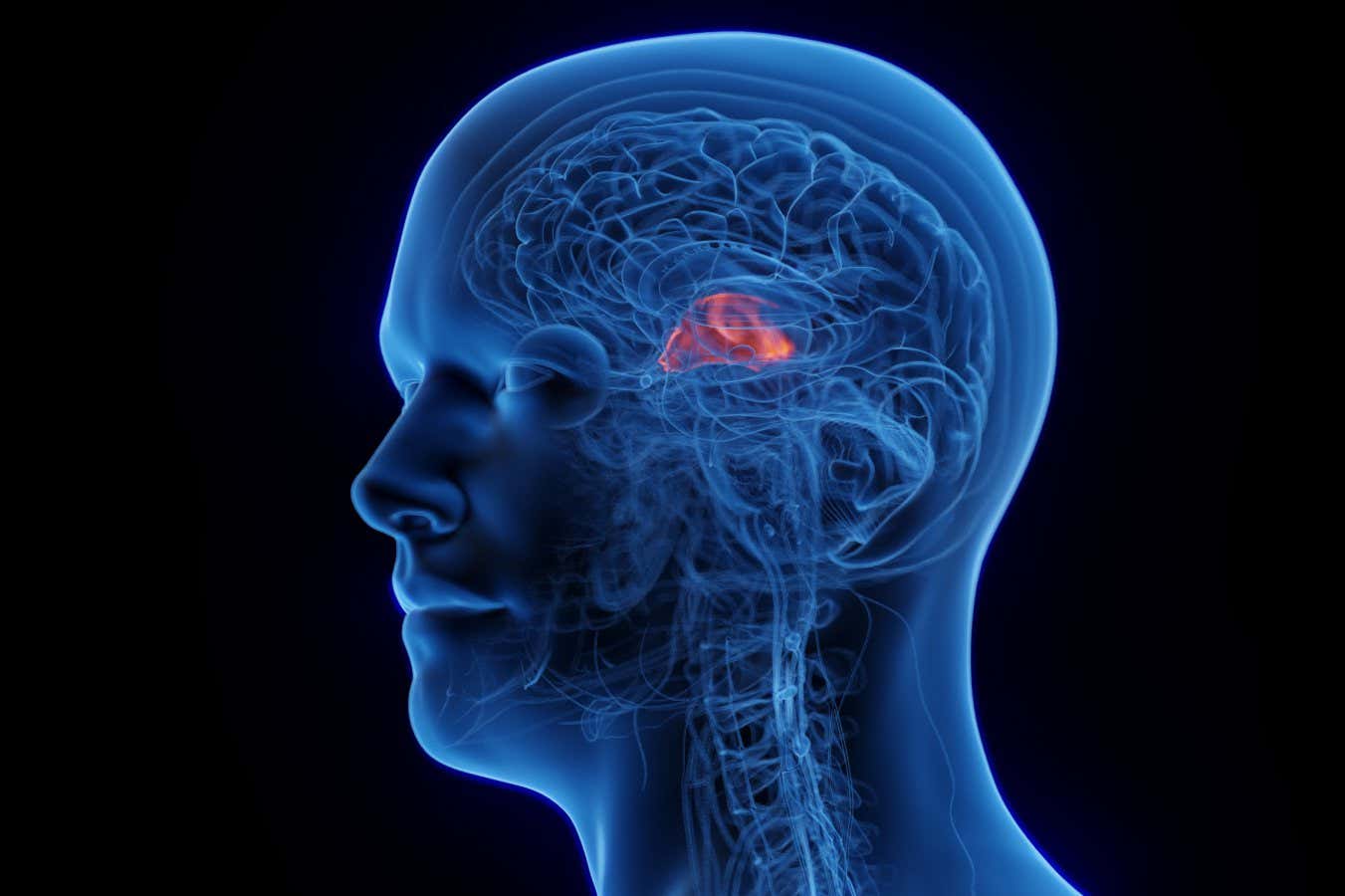

The device was implanted into the thalamus (highlighted), a region deep in the brain that is linked to alertness, learning and memory
SEBASTIAN KAULITZKI/SCIENCE PHOTO LIBRARY/Getty Images
An implant that stimulates a region deep in the brain may boost cognitive function in people with traumatic brain injuries long after the incident occurred. This is based on the results of a small study, which was primarily carried out to assess the device’s safety, with further research required.
A major blow to the head, due to a car crash, for example, can result in a traumatic brain injury (TBI). In mild cases, this may temporarily affect someone’s brain cells, but in more severe incidents, the individual can have long-term emotional, physical, cognitive and behavioural impairments.
“One of the major problems is that there really are no effective therapies for traumatic brain injury,” says Jaimie Henderson at Stanford University in California.
In an attempt to combat this, Henderson and his colleagues developed an implant that could stimulate the thalamus – a region deep in the brain that is linked to alertness, learning and memory – to see if this could revive cognitive functions in those with TBI.
“You can think of it almost like a pacemaker,” says Henderson. “The device is implanted in the brain and delivers electrical pulses to electrodes that are placed on specific parts of the brain.”
To test the device, the team recruited six people between the ages of 22 and 60 who had a moderate to severe TBI from an incident that occurred between three and 18 years ago. They all had ongoing cognitive impairment, such as poor memory or lack of attentiveness.
Before implantation, the participants took a neurological assessment called a trail making test that involves connecting a set of 25 dots as quickly as possible to measure mental speed, processing and flexibility.
The team then surgically inserted the device into each of the participants’ brains. The implants were programmed to stimulate the brain for 12 hours a day, during typical waking hours, and were switched off at night.
One year later, the team assessed five of the participants via the trail making test again. The sixth participant dropped out of the trial after developing a scalp infection from the surgery, which they recovered from. No other serious side effects occurred.
All five participants had test scores that were between 15 and 52 per cent higher compared with their pre-implant results. “I think that was our biggest surprise: the size of the improvement,” says team member Nicholas Schiff at Cornell University in New York.
The trial was small and designed to primarily demonstrate the device’s safety, says Henderson. In terms of the scalp infection, Henderson says that such complications are always a risk with surgical procedures. “On balance, I think we can provide benefit for people who have no other treatment options,” he says.
The team plans to carry out a larger study to further assess the implant’s safety and efficacy, says Henderson. “Deep brain stimulation could help millions of people who are suffering, often in silence, from the effects of traumatic brain injury,” he says.
Topics: